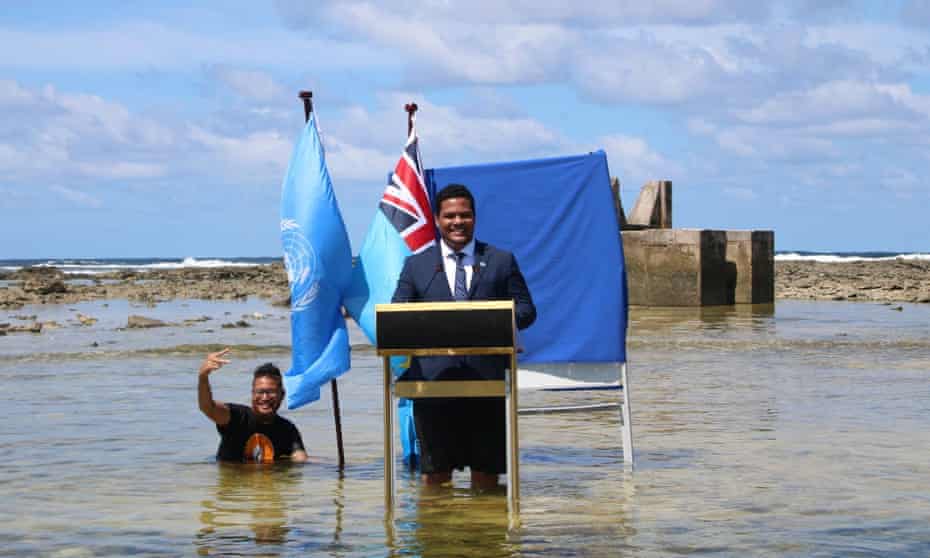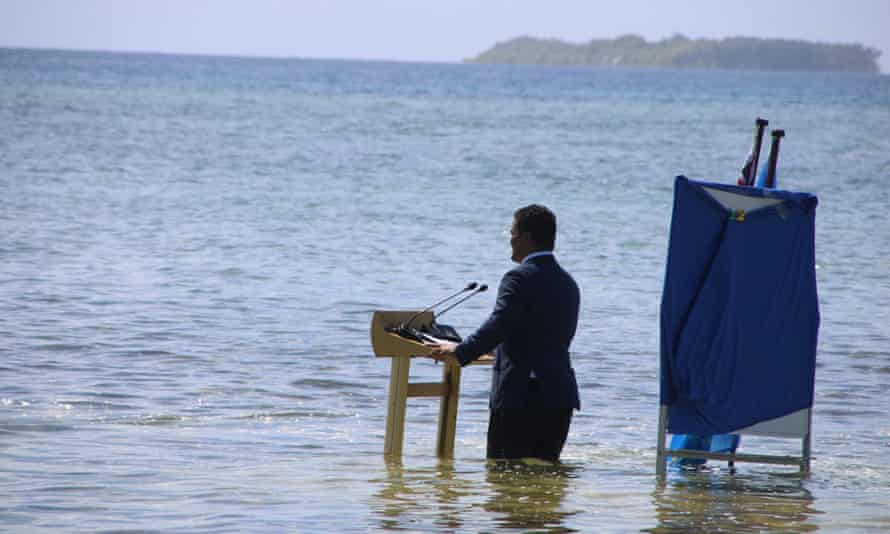Tuvalu minister to address Cop26 knee deep in seawater to highlight climate crisis
Foreign minister Simon Kofe hopes the speech will demonstrate the reality for countries on the frontline

Tuvalu’s foreign minister has recorded a speech for the United Nations climate conference in Glasgow standing knee-deep in seawater to highlight how his low-lying Pacific Island nation is on the frontline of climate change.
Images of Simon Kofe standing in a suit and tie at a lectern set up in the sea, with his trouser legs rolled up, have been shared widely on social media, drawing attention to Tuvalu’s struggle against rising sea levels.
“The statement juxtaposes the Cop26 setting with the real-life situations faced in Tuvalu due to the impacts of climate change and sea level rise and highlights the bold action Tuvalu is taking to address the very pressing issues of human mobility under climate change,” Kofe said in his video message.

The video was shot by public broadcaster TVBC at the far end of Fongafale, the main islet of the capital Funafuti, a government official said. It is due to be shown at the climate summit on Tuesday and comes as regional leaders push for more aggressive action to limit the impact of climate change.
Many big polluters have vowed to intensify their carbon cuts over coming decades with some aiming for net zero carbon emissions by 2050. But Pacific Island leaders have demanded immediate action, pointing out that the very survival of their low-lying countries is at stake.
Before Cop26, it emerged that one-third of Pacific small island states and territories would be unable to send any government figures to the summit in Glasgow due to Covid-19 travel restrictions.
The lack of high-level representation of Pacific nations at the meeting led to fears that the concerns of these countries, which are among those most at risk due to the climate crisis, would not be appropriately represented at the summit.
In October, a World Bank report said that projected sea level rise could cost the Marshall Islands, a country in the north Pacific halfway between Hawaii and Australia, its status as a nation.
It has a population of 59,000 and a land mass of just 180sq km, consisting of 1,156 individual islands. It is one of the countries considered most at risk of disappearing due to sea level rise.
With Reuters
